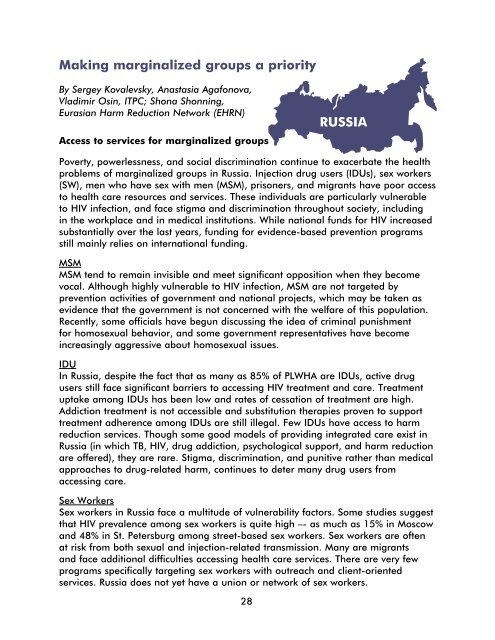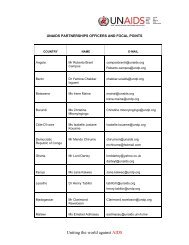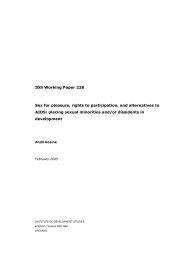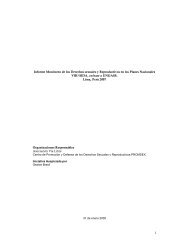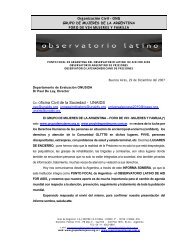Missing the Target #5: Improving AIDS Drug Access ... - CD8 T cells
Missing the Target #5: Improving AIDS Drug Access ... - CD8 T cells
Missing the Target #5: Improving AIDS Drug Access ... - CD8 T cells
You also want an ePaper? Increase the reach of your titles
YUMPU automatically turns print PDFs into web optimized ePapers that Google loves.
Making marginalized groups a priorityBy Sergey Kovalevsky, Anastasia Agafonova,Vladimir Osin, ITPC; Shona Shonning,Eurasian Harm Reduction Network (EHRN)<strong>Access</strong> to services for marginalized groupsPoverty, powerlessness, and social discrimination continue to exacerbate <strong>the</strong> healthproblems of marginalized groups in Russia. Injection drug users (IDUs), sex workers(SW), men who have sex with men (MSM), prisoners, and migrants have poor accessto health care resources and services. These individuals are particularly vulnerableto HIV infection, and face stigma and discrimination throughout society, includingin <strong>the</strong> workplace and in medical institutions. While national funds for HIV increasedsubstantially over <strong>the</strong> last years, funding for evidence-based prevention programsstill mainly relies on international funding.MSMMSM tend to remain invisible and meet significant opposition when <strong>the</strong>y becomevocal. Although highly vulnerable to HIV infection, MSM are not targeted byprevention activities of government and national projects, which may be taken asevidence that <strong>the</strong> government is not concerned with <strong>the</strong> welfare of this population.Recently, some officials have begun discussing <strong>the</strong> idea of criminal punishmentfor homosexual behavior, and some government representatives have becomeincreasingly aggressive about homosexual issues.IDUIn Russia, despite <strong>the</strong> fact that as many as 85% of PLWHA are IDUs, active drugusers still face significant barriers to accessing HIV treatment and care. Treatmentuptake among IDUs has been low and rates of cessation of treatment are high.Addiction treatment is not accessible and substitution <strong>the</strong>rapies proven to supporttreatment adherence among IDUs are still illegal. Few IDUs have access to harmreduction services. Though some good models of providing integrated care exist inRussia (in which TB, HIV, drug addiction, psychological support, and harm reductionare offered), <strong>the</strong>y are rare. Stigma, discrimination, and punitive ra<strong>the</strong>r than medicalapproaches to drug-related harm, continues to deter many drug users fromaccessing care.Sex WorkersSex workers in Russia face a multitude of vulnerability factors. Some studies suggestthat HIV prevalence among sex workers is quite high –- as much as 15% in Moscowand 48% in St. Petersburg among street-based sex workers. Sex workers are oftenat risk from both sexual and injection-related transmission. Many are migrantsand face additional difficulties accessing health care services. There are very fewprograms specifically targeting sex workers with outreach and client-orientedservices. Russia does not yet have a union or network of sex workers.28


